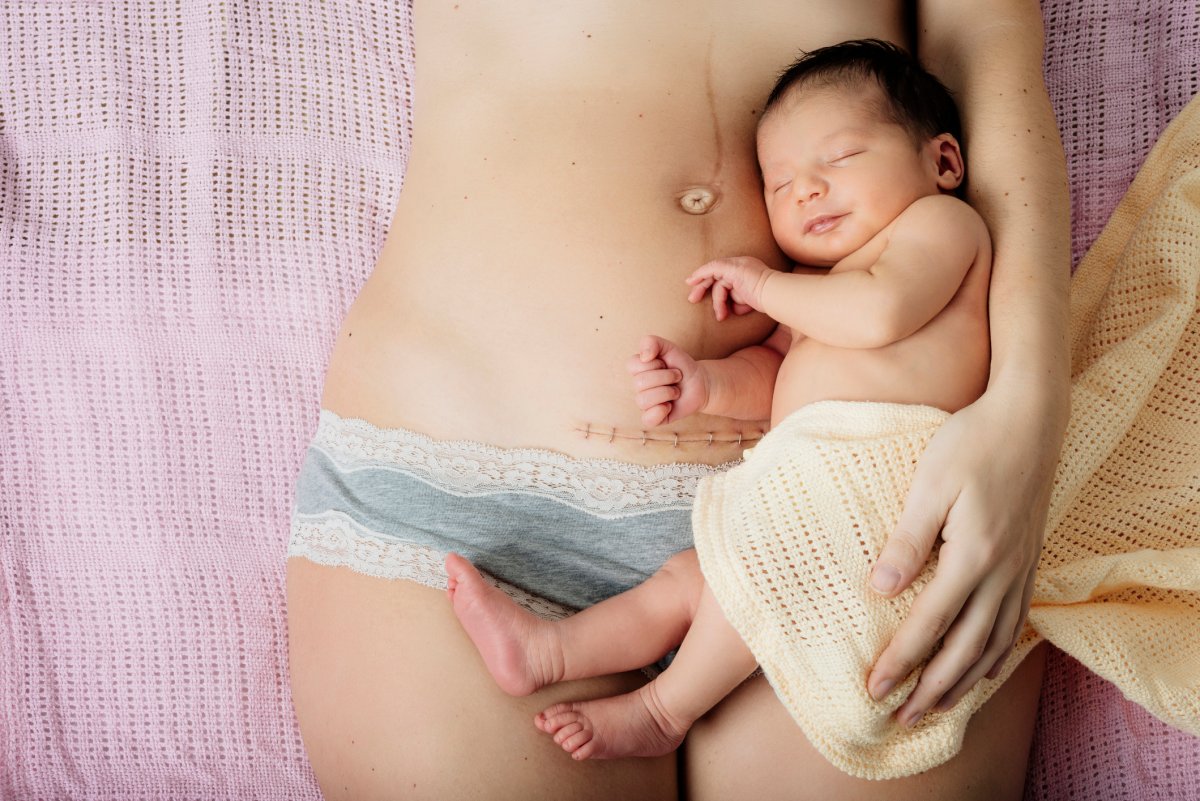Women who give birth by C-section are more likely to encounter long-term health risks later in life, a new study has found.

According to researchers at Aalborg University in Denmark and at Ariadne Labs in Boston, women who undergo caesarean section births have a higher chance of needing a hysterectomy which is likely to result in more surgical complications resulting from the procedure.
READ MORE: Why researchers are encouraging women to eat and drink during labour
(A hysterectomy is the surgical removal of a woman’s uterus. It is often done because of pain and/or bleeding, researchers explain.)
“While mothers in many parts of the world do not have safe and timely access to C-sections, most countries that have the capacity to do C-sections seem to err on the side of doing too many,” obstetrician and co-author Dr. Neel Shah says in a statement. “In the United States, about half the C-sections we do appear to be avoidable. This study is the first to estimate the potential population-wide harms of this trend to mothers over the long term.”
Researchers looked at a nationwide database of women who gave birth over a 20-year stretch of time in Denmark. Included in the study were the records of 7,685 women who had a median age of 40.
“Because women often have more than one baby, we are the only surgeons that routinely cut on the same scar over and over again and that makes surgery technically harder each time,” Shah explains. “The internal tissue starts to fuse together and can look like a melted box of crayons. C-sections and hysterectomies are two of the most common surgeries performed on women, and those who require both are at a significantly higher risk of complications.”
From their research, the team found that women who had at least one birth and a hysterectomy were 50 per cent more likely to have delivered their baby through C-section compared to the general population. This, researchers say, suggests that getting a C-section is likely to put women at a higher risk of needing a hysterectomy later in life.
Women who have had a C-section and later needed a hysterectomy were more than 16 per cent more likely to also experience post-operative complications – like bleeding and infection – than their counterparts who gave birth vaginally, as well as 30 per cent more likely to need re-operation.
Women who have two or more C-sections, however, were 96 per cent more likely to need blood transfusions during a hysterectomy.
READ MORE: Mom shares powerful message for anyone who thinks C-sections are ‘easy’
- Canadian man dies during Texas Ironman event. His widow wants answers as to why
- ‘Sciatica was gone’: hospital performs robot-assisted spinal surgery in Canadian first
- Canadians more likely to eat food past best-before date. What are the risks?
- Treatment from female doctors leads to lower death rates, study finds
Shah says the results of the study support current policies and clinical efforts to prevent C-section births that are not “medically necessary.” Shah and his team are also working to identify the drivers of high C-section rates and are hoping to develop a solution to the problem.
According to the team, more than 23 million women around the world give birth through C-sections every year.
The study was published this week in JAMA Surgery.
Latest numbers show Canada’s C-section rate at 27.5 per cent in 2014 – that is up from 18.7 in 1997, the Canadian Institute for Health Information (CIHI) reports.
Hysterectomies are also one of the most frequently performed surgeries among Canadian women, the Public Health Agency of Canada says.
Women between the ages of 50 to 59 had the highest prevalence of hysterectomy surgery with 35 per cent having undergone the procedure in 2008, latest number show.






Comments